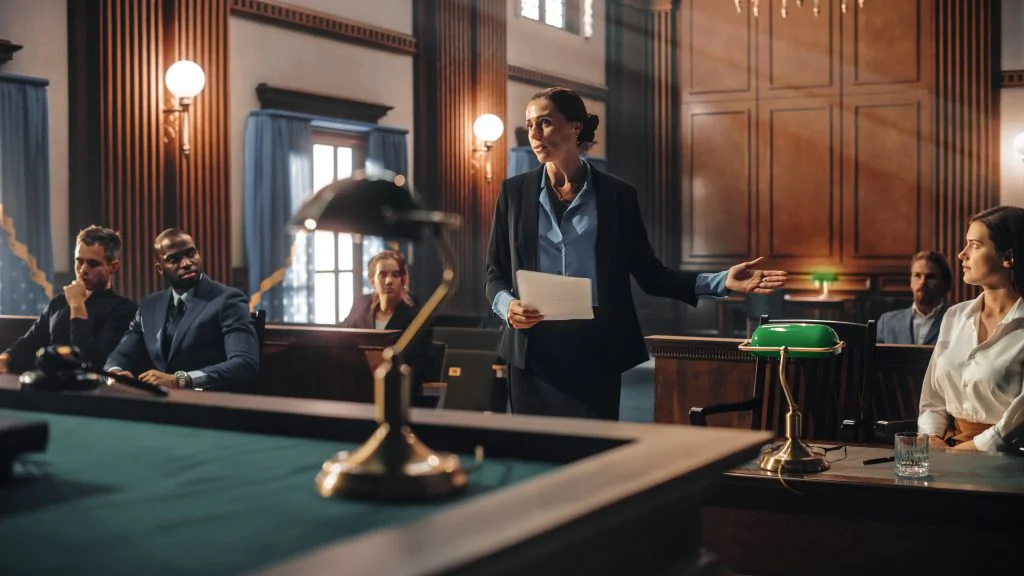Neurosurgeons are some of the most skilled professionals in the healthcare industry. Each is required to undergo many years of schooling and training and perform demonstrations of their competency before being qualified to operate on patients.
Although the majority of neurosurgeons undoubtedly do a great job, there are also plenty of negligent or improperly trained neurosurgeons who can cause injuries to their patients.
Those affected by a neurosurgical injury should know all the ways in which it will affect them, as well as how to seek compensation for damages if they choose to seek legal action in the form of a medical malpractice lawsuit.
What Are Neurological and Neurosurgical Injuries?
A neurologist is a specialized medical professional that focuses on preventing, diagnosing, and treating different disorders, illnesses, or injuries relating to peripheral and central nervous systems. These nervous systems are made up of the brain, spinal cord, and nerves throughout the body, as well as major sensory organs including the eyes. A neurosurgeon is a type of neurologist that specializes in treating these areas with surgery and can also provide diagnosis.
Difference Between Neurological and Neurosurgical Injuries
Thus, neurological injuries are any injuries incurred to the nervous system, while neurosurgical injuries are injuries resulting from a surgical procedure intended to assist with or cure one or more conditions. Neurosurgeons are most often used to treat conditions like:
- Aneurysms
- Back surgery
- Seizures
- Neurological disorders, including the treatment of conditions like Parkinson’s disease
Sometimes, a neurosurgical injury can be as simple as a cut on a major nerve, which can cause extreme pain and discomfort for patients.
Neurosurgical Errors
In other cases, neurosurgical errors can lead to even worse side effects, including:
- Brain injuries
- Aneurysms
- Complex regional pain syndrome
- Loss of limb functionality or sensation
The injuries caused by neurological or neurosurgical errors are particularly dangerous because such surgeries deal with fragile and crucial parts of the human body. Even the smallest surgical mistake can result in disastrous injuries which can result in lifelong complications.
What Causes Neurological and Neurosurgical Injuries?
Neuroscience is incredibly complex, which is why neurosurgeons must undergo many years of medical school and practice before being allowed to operate on patients. In spite of their training, no neurosurgeon is perfect, and there is always a risk of an honest mistake being made during surgery.
Neurological Injuries Caused by Medical Negligence
In other cases, a neurosurgeon may be negligent in their procedures. Medical negligence occurs when a neurosurgeon does not pay proper attention during surgery, doesn’t listen to their patient’s needs, or otherwise does not fulfill or uphold their medical duties to a reasonable standard.
Regardless of the exact reason for the neurological or neurosurgical injury, injured patients have the right to know what went wrong during their operation, and what their options are regarding further treatment and potential legal compensation. In some cases, an investigation may be called to discover whether the neurosurgeon in question is guilty of medical malpractice or negligence.
Neurological Injuries Caused by Medical Malpractice
Neurological injuries can occur due to improper practices performed by neurosurgeons, the hospital in which the operation took place, or by one of the head surgeon’s assistants. In a nutshell, a medical mistake counts as malpractice if it’s clearly proven that the professional or healthcare organization in question harmed their patient due to not following standard procedures. This can include taking too long to take action for a patient’s well-being, misdiagnosing a patient, or forgetting or refusing to follow the expected steps during an operation.
Examples of neurosurgical malpractice:
- A neurosurgeon improperly reads test results and botches a surgery due to this error. The error is malpractice if the test results were readable and easy to understand for someone of his or her medical position
- A neurosurgeon improperly performs a procedure due to distractions or because of other issues, such as inebriation when they were supposed to be on call
- A neurosurgeon or assistant does not properly monitor a patient
- A neurosurgeon ignores the information of their patient, issuing an improper surgical recommendation and causing the patient to undergo an unnecessary procedure. This may be particularly egregious, as some neurosurgeons may try to make money by recommending unnecessary procedures for those they know are covered by insurance
Proving a medical malpractice case for neurosurgery, however, can be difficult without legal assistance. Medical malpractice lawyers in New York can provide the expertise and investigative push to get results.
How Common Are Neurological and Neurosurgical Injuries?
Unfortunately, neurological and neurosurgical injuries are far more prevalent in the United States than most would expect.
- Data from the Center for Disease Control (CDC) indicates that brain injuries account for up to 30% of all injury-related deaths
- Neurosurgery is the third-most common specialty to trigger medical malpractice claims
- Allegations against neurosurgeon performance appeared in 73% of these claims
- Meanwhile, 23% of all alleged injuries were either “high severity” or resulted in death
All of this is backed up by another study that found that medical errors in neurosurgery were far too common for comfort. The study found that surgical errors were detected in a majority of studied cases.
Compensation for a Neurological or Neurosurgical Injury
Because the injuries and costs associated with neurological or neurosurgical injuries are so severe, those who pursue lawsuits against neurosurgeons or hospitals responsible for these types of medical malpractice can expect significant damages if they win. New York medical malpractice attorneys can help either neurosurgical injury victims or their families recover the maximum amount of compensation to pay for medical bills and more.
Potential damages include:
- Costs for medical care: both past, and future/ongoing treatments. This is extremely important given the high prices of most neurological treatments
- Costs for pain and suffering
- Damages for loss of limb function and/or quality of life
Contact New York Neurosurgery Malpractice Attorneys Today
Ultimately, anyone affected by a neurosurgical error is in the best hands with Sobo & Sobo: one of New York’s most experienced and trusted teams of medical malpractice experts for over 50 years.
With their expertise and their long history of successful medical malpractice claims, neurosurgical error victims will be able to recover what they deserve from a lawsuit and begin the journey to recovery. Contact them today for a free consultation by calling 855-468-7626.




